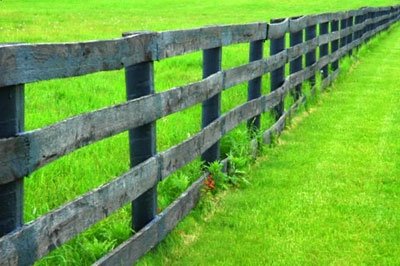
Q: What are your thoughts on the psychology behind the old saying, ‘the grass is always greener,’ where people search endlessly for something better than what they already have? Is that an unhealthy mindset? I know that it’s always good to look for improvements in your life, but it seems that constantly doing so can keep you from enjoying what you have right now.
Some examples might include a person who likes their job, but is constantly looking for something better, or a person in a happy relationship who feels that others’ relationships are better or that they should be looking for something better. Seems like a big contradiction to me.
A: Although the phrase doesn’t name the error involved, ‘the grass is always greener’ is a fallacy.
The error isn’t in wanting something better when, in fact, something objectively better is available; the error is in not knowing what you want, but believing that whatever it is, it will be better than what you have. It’s sort of a psychological placing of the cart before the horse.
You can’t evaluate whether or not something is better until you first know what it is. That’s not all that different from the attitude that some shoppers have: ‘I have no idea what I want; but I’ll know it when I see it!’ A good example is the person already in a relationship who wants something different—but doesn’t know why. Or the person who feels he’s in the wrong career but isn’t able to identify the correct one. Note that this is not the same as the person who may not be happy with what he has, but actually does know what he wants. He knows why he chose it, and he knows how to identify something better. And if/when that ‘something better’ comes along, he’ll go after it.
A lot of this attitude stems from low self-confidence. Sometimes people internalize the idea, ‘Who am I to know what I want?’ Yes, it sounds irrational, but I have discovered that this is how a surprising number of people feel. Most of them have enough self-worth to know that they should choose what they want, but they don’t think they know how. All-American freedom and opportunity become emotional burdens to people who otherwise want to love life but simply don’t know how to make choices.
Impossible perfectionism can also lead to a ‘grass is always greener’ attitude. In other words, no matter what you have or what you accomplish, it will never be good enough. The obvious result is never being satisfied with any relationship, any career, or any decision great or small. ‘I ordered the steak. I liked it a great deal, but I wonder if the chicken would have been better?’ A healthy person would say, ‘Wow, the steak was wonderful. It’s a good restaurant, and I’ll go back. Maybe I’ll even try the chicken next time.’
A man crippled by anxiety and depression once told me, ‘No matter what decision I make, I feel like there was another choice I could have made that might have been better.’ That really cuts to the heart of the issue. If you follow this man’s premise all the way to the outlook that it fosters, you end up crippled with anxiety and an overwhelming sense that life is futile. Most people don’t follow the premise that far, but many follow it far enough that their lives (and their potential enjoyment of life) are unnecessarily burdened by chronic anxiety and doubt.
Be sure to “friend” Dr. Hurd on Facebook. Search under “Michael Hurd” (Rehoboth Beach DE). Get up-to-the-minute postings, recommended articles and links, and engage in back-and-forth discussion with Dr. Hurd on topics of interest.
